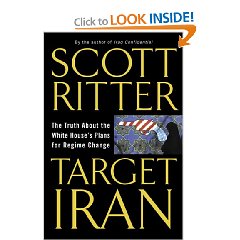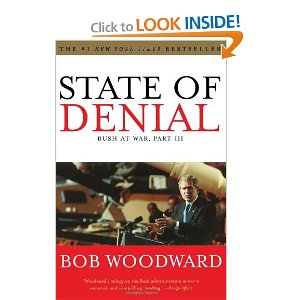 Our Era's Tom Paine on Common Sense, June 12, 2007
Our Era's Tom Paine on Common Sense, June 12, 2007
Ted Gup
As one of those who testified to the Moynihan Commission on Secrecy, and to earlier Presidential Commissions of excessive government classification, I consider this book to be a treasure. The reviewer that defends government secrecy to protect “sources and methods” knows nothing of them. I was a spy, I helped steal codebooks and program imagery satellites, and I stood up the Marine Corps Intelligence Command.
The author has rendered the Republic an extraordinary service, and from somewhere in heaven Daniel Patrick Moynihan is smiling upon this superb public service.
The author opens the book with an extraordinary snapshot of a single day, Thursday, February 2, 2006, and a stunning array of secret sessions and practices spanning the entire Nation and all of its domains (academic, business, government, law enforcement, religious).
This is a book of case studies, and a book with a constant theme that we must all note: secrecy breeds contempt and distrust, and secrecy blocks the collective intelligence of the people from playing a role in self-governance.
The author excels at discussion not just excessive national security secrecy, but how secrecy is now pervasive, from agricultural contamination and recalls being concealed from the public, to energy policy (Dick Cheney is the first in history to destroy all records of all his guests).
The author reminds us that Thomas Jefferson stated that “Information is the currency of democracy,” and in all that he writes, he shows how secrecy is pathologically altering the relationship between the government and the governed, as well as between all forms of organization and their clients, members, or adherents.
From the security clearance backlog to CIA abuses against its own employees to enlisted men being forbidden to discuss severe deficiencies in their body armor to the concealment of government negligence resulting in wrongful death to the concealment of corporate product deficiencies that kill to the silencing of valid *internal* critics of policies of torture and rendition to the obsessive *reclassification* of information long declassified, the author has written the definitive treatise on how the US Government and all elements of the US (academia, commerce) etc. have forsaken the principles and values of our Founding Fathers.
The author states that secrecy produces errors in judgment and frees government from the fear of being contradicted by the facts.
I admire this book, and this author, very much. This is a book that every citizen voter and citizen consumer should read. We must eradicate 90% of the secrecy in America, and we must redirect 75% of both the military and the intelligence budgets toward waging peace and open source intelligence, including free online and on demand education in 183 languages.
I can best support this author and this book by offering several quotes that he missed and that completely support his presentation:
Amilcar Cabral, African freedom fighter (1924-1973)
Hide nothing from the masses of our people. Tell no lies. Expose lies whenever they are told. Mask no difficulties, mistakes, failures. Claim no easy victories. … Our experience has shown us that in the general framework of daily struggle, this battle against ourselves, this struggle against our own weaknesses … is the most difficult of all. [0}
Daniel Ellsberg speaking to Henry Kissinger:
The danger is, you'll become like a moron. You'll become incapable of learning from most people in the world, no matter how much experience they have in their particular areas that may be much greater than yours” [because of your blind faith in the value of your narrow and often incorrect secret information]. [1]
Rodney McDaniel speaking at Harvard University:
Everybody who's a real practitioner, and I'm sure you're not all naïve in this regard, realizes that there are two uses to which security classification is put: the legitimate desire to protect secrets, and the protection of bureaucratic turf. As a practitioner of the real world, it's about 90 bureaucratic turf; 10 legitimate protection of secrets as far as I am concerned. [2]
Ted Shackley in his Memoirs:
In short, the collapse of the communist system in Central Europe has created a new situation for intelligence collectors. I estimate, based in part on my commercial discussions since 1990 in East Germany, Poland, Albania, Czechoslovakia, and Hungary, that 80 percent of what is on any intelligence agency's wish list for this area as of 1991 is now available overtly. [3]
General Tony Zinni speaking to a senior national security manager:
80% of what I needed to know as CINCENT I got from open sources rather than classified reporting. And within the remaining 20%, if I knew what to look for, I found another 16%. At the end of it all, classified intelligence provided me, at best, with 4% of my command knowledge. [4]
Robert Steele, in varied speeches and publications:
Do not send a spy where a schoolboy can go.
The problem with spies is they only know secrets.
OSINT changes the rules of the game by making everyone in the audience a player with a legitimate right to collect, produce, and consume public intelligence.
Today, U.S. “intelligence” is upside down and inside out. It is upside down because it relies on satellites in outer space rather than human eyes on the ground. It is inside out because it tries to divine intelligence unilaterally, without first asking anyone else what information they might provide. [5]
Footnotes:
[0] Received in email from an associate.
[1] Daniel Ellsberg, SECRETS: A Memoir of Vietnam and the Pentagon Papers (Viking, 2002).
[2] Rodney McDaniel, then Executive Secretary of the National Security Council, to a Harvard University seminar, as cited in Thomas P. Croakley (ed), C3I: Issues of Command and Control (National Defense University, 1991). Page 68.
[3] Ted Shackley, SPYMASTER: My Life in the CIA (Potomac, 2006). Page 282
[4] General Tony Zinni, USMC (Ret.), former Commander-in-Chief, U.S. Central Command (CINCCENT), as recounted to the author on 4 April 2006.
[5] Forbes.com, within “Blank Slate,” as Edited By David M. Ewalt and Michael Noer and published 04-18-06.
Secrets: A Memoir of Vietnam and the Pentagon Papers
C3I: Issues of Command and Control
Spymaster: My Life in the CIA
The Battle for Peace: A Frontline Vision of America's Power and Purpose
Battle Ready (Tom Clancy Commanders)
On Intelligence : Spies and Secrecy in an Open World
The New Craft of Intelligence: Personal, Public, & Political–Citizen's Action Handbook for Fighting Terrorism, Genocide, Disease, Toxic Bombs, & Corruption
Information Operations: All Information, All Languages, All the Time
THE SMART NATION ACT: Public Intelligence in the Public Interest
See my comment for URL to 16 pages of testimony in 1993 on this topic.












